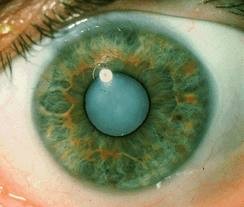Do you think you're a candidate for cataract surgery? If yes, then you might want to do some early research about what it really is all about. Throw in some more facts about the risks involved in it, as well as the expectations that you may have.

Cataract Surgery
by CRfan
Cataract surgery is one of the most common surgeries peformed. Over 3 million people have their cataracts removed each year.
What Is A Cataract
First things first. Cataract surgery involves the removal of the crystalline lens. In layman's terms, this is simply the natural lens of your eye. Removing it becomes necessary when it develops an opacification, or clouding of the lens. When a cataract forms in your eye, it leads to vision impairment, and in worse cases, even loss of eyesight. In order to prevent this from happening, therefore, there is no other recourse but to take out the crystalline lens. You will not go home empty-handed, however, because this will be replaced by synthetic ones, leaving you with a brand new, clean, transparent lens. It should be reassuring for you to know that over 90% of cataract surgeries end up being successful, bringing back clear eyesight to millions of people the world over.
Extracapsular Cataract Extraction (ECCE)
Now, that's not all there is to know about cataract surgery. There are actually two main kinds that you can choose from. Actually, it all depends on how bad your situation is. The first one is the phacoemulsification process (Phaco), while the other is the conventional extracapsular cataract extraction (ECCE). Phaco is widely used by Opthalmologists, and requires the use of a machine that features an ultrasonic handpiece featuring either titanium or steel tip. Apart from that, there's also the "chopper", which helps in cracking up the nucleus of the cataract. The phaco probe serves three purposes: to break up the crystalline lens with ultrasonic waves, to irritgate the eye with solution to maintain pressure and to vacuum out the pieces of the lens after it has been broken apart.
Potential Side Effects
Cataract extraction on the whole is a very safe surgery and the complications are minor and short-lived. Common complications include pain at the wound site, a temporary rise in the intraocular pressure and clouding of the cornea. All of these will generally subside within a couple of days after the surgery. There are topical medications that can treat these complications. If you have a history of high eye pressures or a family member with Glaucoma your doctor may place you on glaucoma medications as a further precaution.
There are other more serious complications such as retinal tears and detachments as well as macular edema.
By far the most common side effect of cataract surgery is the formation of a secondary cataract or capsule opacification. Up to 30% of patients experience a clouding of the capsule after having the lens removed. This is very easily remedied with a Nd:YAG laser to break apart the cells that have grown on the capsule. This must only be performed once and cannot happen again.
Think You're Ready?
In the past you needed to have a certain level of acuity loss on the eye chart to be considered a candidate for Medicare to pay for cataract surgery. This is no longer the case. If cataracts bother you enough that they interfere with your daily life and sense of safety when driving or walking tell your doctor.
People are very happy after cataract surgery because they may have worn glasses all their lives. The replacement lens is calculated to correct your vision. Hopefully you will only need glasses for reading.
You might also like
Anosmia - Can it be reversed ?Anosmia- loss of the sense of smell is one of the first signs of Parkinson's ...
Tudor remedies and cosmeticsYesterday I visited a Medieval Hall for a Tudor medicine and cosmetics talk. ...



 How The FDA Approves New Medicineson 08/16/2013
How The FDA Approves New Medicineson 08/16/2013
 10 Tax Mistakes Business Owners Makeon 08/05/2013
10 Tax Mistakes Business Owners Makeon 08/05/2013
 Accessories For Traveling With Jeweleryon 02/12/2013
Accessories For Traveling With Jeweleryon 02/12/2013
 Stages of the Sleep Cycleon 09/23/2012
Stages of the Sleep Cycleon 09/23/2012


Comments